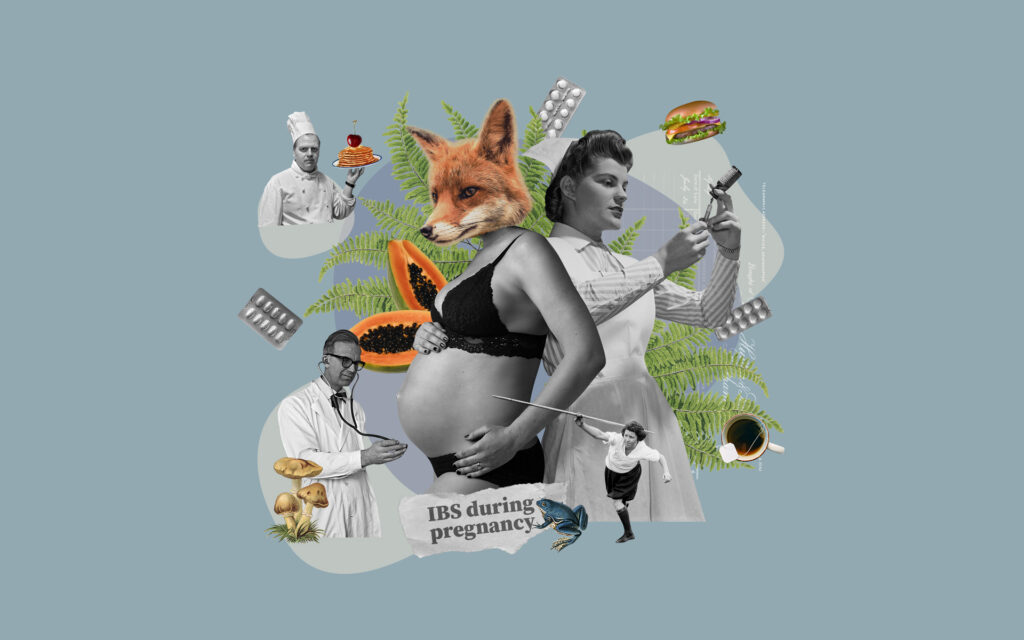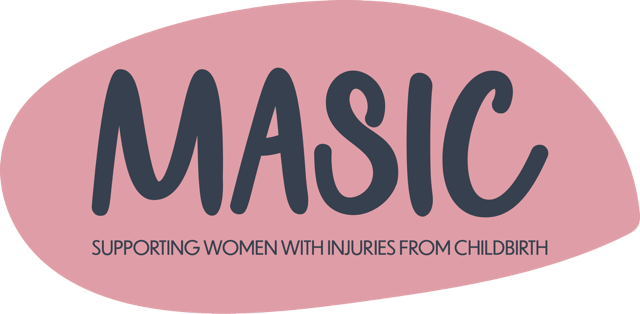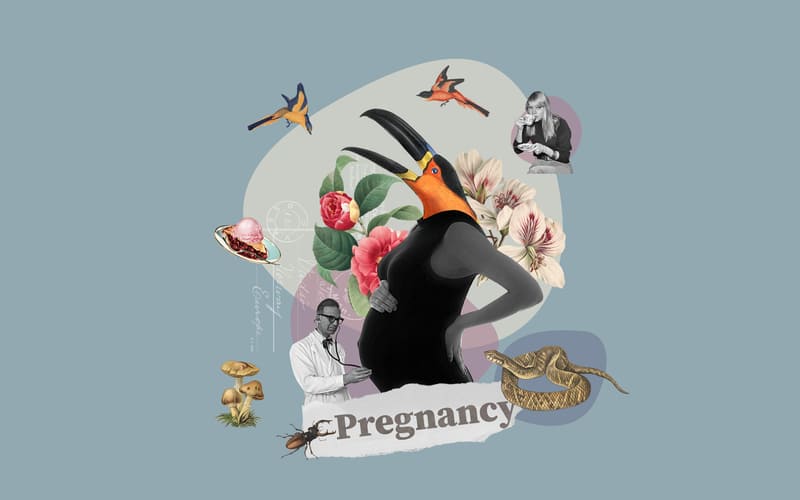Over the years, I have learned how to deal with the Irritable Bowel Syndrome (IBS) and its uncomfortable symptoms. When I got pregnant, however, my IBS went absolutely out of control: unbearable lower abdominal pain and cramps on a daily basis, painful bloating and excessive gas after every meal, and constipation. Since I was not able to eat, I lost 4kg in the first 2 months of pregnancy. Seeking help for my pain I visited countless doctors, gynecologists, gastroenterologists and alternative medical practitioners. Everywhere I went I heard that due to “my condition” it may be unsafe to take any of the IBS medication as there were no studies on pregnant women. Instead of medical treatment, I was told to “hold on” and wait for the baby to be born! Powerless, desperate and furious at times I knew that I would have to find my own ways to cope with IBS.
Please note that I am not a doctor, nor a specialist in alternative medicine. My recommendations on how to deal with IBS during pregnancy are based on my own experience. Please make sure to consult with your prenatal care specialist and/or gastroenterologist for any medical questions.
What is IBS?
Put simply, IBS is a problem with how your bowels work. It is a common condition that affects your large intestine. This functional gastrointestinal disorder is characterised by the following symptoms:
- Lower abdominal pain and/or cramps, which increase after eating and usually get better after having a bowel movement
- Bloating, excessive gas, feeling of fullness and/or the inability to pass gas
- Constipation, also called as IBS-C type with less frequent bowel movements and often hard and dry stool, which can also lead to hemorrhoids
- Diarrhoea (IBS-D) with frequent loose, liquid, or watery bowel movements
- Less common symptoms such as flatulence (farting), low energy and tiredness or nausea may also occur.1
According to the International Foundation for Gastrointestinal Disorders (IFFGD), 10% to 15% of people worldwide suffer from IBS. 2 IBS is also more common among women than men. The American College of Gastroenterology states that IBS is roughly twice as common in women as in men. The exact estimation of IBS prevalence rates is very difficult as only 1 in 4 people with IBS see a doctor about their problem. 3
Understanding IBS
Even though scientists still do not know what really causes IBS, according to Monash University, factors such as gut sensitivity, altered gut motility, imbalance of ‘good’ and ‘bad’ bacteria, gut infections or leaky gut may cause IBS. 1 According to the Mayo Clinic abnormalities in the nerves in the digestive system or even early life stress such as childhood trauma may also cause IBS. .. 4
Unfortunately, IBS is a lifelong problem. IBS is considered a chronic condition, which means it is usually present over the long-term. However, IBS symptoms often come and go over time. Symptoms may improve or disappear for a time, and then return, or new symptoms may develop. Symptoms may also change from being quite mild, to sometimes being quite severe.
Hormonal impact on IBS?
Even though there are conflicting studies on how hormones affect IBS, the one thing scientists are certain about is that sex hormones such as estrogen and progesterone can obstruct smooth muscle contraction (bowel movement) and influence our perception of pain. For example, high levels of progesterone slow down gut motility causing constipation, as well as gastroesophageal reflux disease and heartburn. When estrogen and progesterone drop, one can suffer from stomach pain, diarrhoea, nausea and bloating. As women experience sudden increases in estrogen and progesterone during pregnancy, this may increase IBS Symptoms on so many different levels. 3
How to treat IBS during pregnancy?
Even though there is no cure for IBS, there are many treatment options to reduce or eliminate problematic symptoms. Here is the list of methods that will keep your IBS Symptoms manageable during pregnancy:
1. Change your diet habits
here is no specific diet for IBS but eating smaller meals more frequently and drinking plenty of water every day help tremendously. Try to identify foods that trigger your IBS symptoms and avoid them in your diet. In my case, I had to eliminate foods such as pork, beef or chicken in large amounts, garlic and onions, cabbage, cauliflower, broccoli, beans, certain types of leafy greens, fast food on any kind, processed food, sauces and any foods containing preservatives, fruit with a lot of fructose and soft drinks. If you have not yet tried it, diet low in FODMAPs, may improve pain and other symptoms. HOWEVER, consult with your prenatal practitioner about your diet to make sure you’re getting the right balance of nutrients for you and your baby. You may also increase dietary fiber mostly found in vegetables, fruits and whole grains.
2. Explore treatment options:
- Drink a lot of aniseed, cumin, or particularly fennel tea with each meal. It will calm your bowel and decrease gas production, and reduce abdominal pain and cramps. I also found it helpful to drink chamomile tea, which calms down your stomach or melissa tea in the evening to help you sleep better at night. Nursing tea, often recommended for pregnant women or nursing moms, is also a tasty alternative based on fennel. As I live in German I drank organic nursing tea from Weleda as well as nursing tea (Stilltee) from Hipp.
- Improve your gut bacteria! Enhance the gut microbiome by taking probiotics, which are the beneficial bacteria in your digestive tract that help regulate inflammation, immune function and digestion. You can find probiotics in food such as yogurt, kefir, sauerkraut, kimchi, miso, kombucha, pickles and some types of cheese. But be careful, for most people with severe IBS symptoms these foods may cause bloating and cramps. For that reason I would recommend you to take probiotic supplements which will better help you with the natural balance between “good” and “bad” intestinal bacteria. When it comes to probiotic supplements, OmniBiotic products from an Austrian Institut Allergosan is the best choice I have found so far. OmniBiotic Panda contains a scientifically tested combination of three naturally occurring strains of bacteria specially selected for pregnant women and babies. There are also plenty of other OmniBiotic Products such as OmniBiotic Hetox, 10, Stress, Travel and so on worth researching.
- Take bowel relaxants. There are two bowel relaxants that pregnant women could take in case of an abdominal pain:
- Peppermint. Peppermint oil is an antispasmodic medicine which relaxes the muscles of your bowel wall and helps relieve stomach cramps, bloating or flatulence. HOWEVER, there are contradictory research findings concerning the safety of use of essential oils while pregnant. Even though many studies have shown peppermint tea doesn’t harm the mother or baby, peppermint oil might be able to cause some very mild uterine contractions, which could be risky in the first trimester of the pregnancy. According to Mayo Clinic, USA “Some women have had success managing headaches in pregnancy with peppermint oil. Peppermint oil also can be helpful for nausea, nasal congestion and muscle aches.” 5 As peppermint oil is rather a controversial method to reduce IBS symptoms, I suggest you discuss this with your doctor or prenatal practitioner.
- Simeticone. Simeticone is a type of medicine, which relieves abdominal pain caused by excessive gas in the digestive tract. It reduces bloating, discomfort or pain and it is safe for pregnant women because it does not cross the placenta. In fact, it is so safe even new-born babies are often treated with Simeticone. I personally had a great experience with this medicine. It not only helped me fight my IBS symptoms, but also helped my baby girl deal with bloating and colic in the first months of her life. Depending on the country medication containing Simeticone may have a different brand name: In the US it could be Gas-X, Baby Gasz, Equilizer Gas Relief, in Canada – Ovol, in Germany one can find it under names Lefax or SabSimplex for babies. Remember that even though the usage of Simeticone is safe, the daily dose should be determined by a doctor or a pharmacist.
3. Change your Lifestyle
The last, but not least, method to deal with IBS during pregnancy is a significant lifestyle change. I assume that due to your condition, you already gave up alcohol, tobacco or too much caffeine, so I will skip those. Instead I would like to focus on exercise, reduction of stress levels, yoga and meditation techniques as well as cognitive behavioral therapy and hypnotherapy.
- Exercise
It is common knowledge that exercise works wonders for your body and brain. In fact, a regular program of low to moderate physical activity will not only make you feel great but it may reduce your IBS symptoms. You do not have to hit the gym just yet. It is more than enough for you to walk regularly, do some low-impact aerobics classes, swim, ride a stationary bike, or do pilates or yoga classes. According to everydayhealth.com “… in a study published in February 2018 in the Journal of Bodywork and Movement Therapies, participants who did six weeks of exercise on a treadmill for just 30 minutes three times a week saw significant improvement in their IBS symptoms and their mood.” 6
- Reduce Stress levels
There is a strong link between gut health and mental health. I am sure you have heard the expression ‘butterflies in the stomach’. Our intestines are very sensitive to stress due to the gut-brain axis. “If you have IBS, the balance between the brain and the gut is disturbed,” says Dr Saloojee. “Stress and anxiety can activate the central nervous system, which in turn releases hormones that affect digestive processes in your gut and may cause diarrhoea, constipation, gas or discomfort.” 7 For that reason, in order to reduce your IBS symptoms, you will have to decrease your stress levels to minimum! But how? The best way to help you achieve peacefulness of body and mind is to regularly do yoga and meditation sessions. Yoga and meditation can be practiced in many different styles, forms and intensities. If you have never done it before I think it’s best to start with an easy and short relaxing session. There are so many free classes online you can choose from. There are also special prenatal yoga classes you may quite enjoy as well. Personally, yoga and meditation changed my life. I absolutely love Boho Beautiful classes. Short but frequent yoga and meditation sessions helped me to manage my stress levels and improved balance, flexibility and strength. I could not recommend it enough. Here are some great yoga and meditation classes that may be a great starting point for you:
- Cognitive behaviour therapy (CBT) and hypnotherapy
As our gut contains a complex network of neurons, it is often called a second brain. When dealing with a stressful situation, one can suffer from heartburn, indigestion, nausea or vomiting, diarrhea or constipation, and of course lower abdominal pain. No wonder that our mental health has a significant influence on the function of our digestive system. In fact, many studies show that IBS patients often suffer from depression and anxiety. 8
Therefore if you would like to take your IBS treatment to a whole new level, CBT or hypnotherapy could change your life. I tried hypnosis many years ago while living in Sydney, Australia to better handle my mental health. When the therapist heard about my IBS problems she suggested that we start our therapy with relaxation sessions which were supposed to help me with the IBS symptoms. This hypnotherapy taught me to relax, to become aware of my body and my mind. It helped me to better react in stressful situations and at the same time to calm down my IBS symptoms. So what hypnotherapy does is restore the communication between the gut and the brain and help you relax, which most of the time improves IBS Symptoms.
CBT can have an amazing impact on your overall well-being followed by IBS symptoms reduction. CBT is supervised by a qualified therapist who can teach you how to manage negative thoughts, better react to fear-evoking situations, positive thinking and how to better control your mind’s response to the discomfort IBS causes you on an everyday basis. CBT is a long term treatment and can be a very challenging approach. There are several articles on CBT for IBS patients you may be interested in, which will dive deeper into this subject (see links below). I can only tell you that it is worth your while, and may be the most life changing therapy you have ever done – I speak from my own experience.
Summary
Dealing with IBS, whether you are pregnant or not you are pregnant or not is a very challenging condition. Unfortunately there are no magic pills that will take your pain away for good. I personally treat my IBS as an internal barometer of my stress levels. I have noticed that the better my mind feels and the lower my stress levels are, the lower the IBS symptoms. Taking care of your mind and your body during pregnancy may become life-changing. Stress reduction and physical activity not only will help you deal with IBS but will also contribute to the healthy development of your baby. It is a win-win situation.
Take care of yourself, be kind to yourself, love yourself, respect yourself.
I hope this article will help some of you to fight the IBS symptoms and will become a start of a journey to a better version of you and help you better understand yourself.
What is your experience with IBS? How did you cope with IBS during pregnancy? Did your IBS symptoms got worse during pregnancy as well? Were your doctors able to help you and if yes how? Please share your experience with us!
References :
- https://www.monashfodmap.com/ibs-central/what-is-ibs/
- https://aboutibs.org/what-is-ibs/facts-about-ibs/statistics/
- https://cdhf.ca/health-lifestyle/why-does-ibs-affect-more-women-than-men/
- https://www.mayoclinic.org/diseases-conditions/irritable-bowel-syndrome/symptoms-causes/syc-20360016
- https://www.mayoclinichealthsystem.org/hometown-health/speaking-of-health/essential-oils-and-pregnancy
- https://www.everydayhealth.com/ibs/ibs-and-exercise.aspx
- https://www.livi.co.uk/your-health/how-do-stress-and-anxiety-affect-ibs/
- https://www.nature.com/articles/s41575-023-00794-z#:.
Further reading :
- Managing Exercise and Your IBS Symptoms
- https://www.mayoclinic.org/healthy-lifestyle/stress-management/in-depth/yoga/art-20044733
- Do Stress and Anxiety Cause IBS?
- CBT vs Hypnosis for IBS
- Irritable Bowel Syndrome (IBS)
- What is IBS
- American college of gastroenterology
- IBS During Pregnancy
Did you like this article?

Meet the Author
Ewa Gillen, co-founder of No Taboo Mom, is a Polish Berliner, creative professional, wife, and mom whose journey into motherhood turned everything around. Having studied, lived, and worked in Poland, Germany, Canada, Australia, and Spain, Ewa brings a rich cultural perspective to her work. As the founder of Gillen Design, she has worked as an Independent Creative Professional for nearly a decade, blending her expertise in design with her passion for meaningful storytelling. “No Taboo Mom is more than a platform—it’s a movement to inspire change through real, open conversations. I believe that by sharing our truths, we create a stronger, more compassionate world for ourselves and the next generation.”















